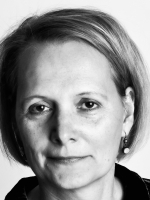| ← prev Human creativity, free will and consciousness |
Contents |
next → Image Gallery |

Antje Weisheimer
ECMWF and University of Oxford
What a wondrous collection of contributions from Tim’s collaborators and colleagues who all presented at the two-day symposium at ECMWF and at the University of Oxford in December 2022 to celebrate 30 Years of Ensemble Forecasting and Tim’s wider scientific career, this has become.
It provides a colourful impression of the manifold interests and vocations of Tim Palmer: as the person who spent the largest part of his professional life and day jobs on ideas of intrinsic uncertainty in weather and climate predictions, from the operationalisation of the ensemble approach at ECMWF to promoting and applying similar concepts to climate forecasts. But equally it also describes Tim the night science1 polymath in search of better answers to some of the most fundamental physics and philosophical problems of the quantum world - where, somewhat ironically for me as a meteorologist, his thoughts are labelled amongst experts as “superdeterminism” – and making deep connections between seemingly unrelated topics like stochasticity, human creativity, free will and consciousness. As a true Magister Ludi he plays our Glass Bead Game exceptionally well; indeed, he has transformed it to new levels. His recent book “The Primacy of Doubt” tells the story of it all.
Whilst this Festschrift was being prepared, the Royal Astronomical Society has announced that the 2023 Gold Medal for Geophysics, its highest honour usually recognising distinguished lifetime achievements, has been awarded to Tim for his outstanding work in advancing the understanding and prediction of climate and weather. Congratulations from all of us!
The symposium would not have been possible without the generous support and help from my ECMWF colleagues Hilda Carr, Karen Clarke, Mike Morrissey, Florence Rabier and Simon Witter, and my Oxford colleagues Martha Buckley, Hannah Christensen, Philip Stier and Kristian Strommen.
Presentation and recordings
Presentations and recordings of the day at ECMWF can be found on our webpage.
Recordings of the Oxford day are available on Youtube.
Long may you run
We’ve been through some things together
With trunks of memories still to come
We found things to do in stormy weather
Long may you run
Long may you run, long may you run
Although these changes have come
With your chrome heart shining in the sun
Long may you run
Well, it was back in blind river in 1962
When I last saw you alive
But we missed that shift on the long decline
Long may you run, long may you run
Although these changes have come
With your chrome heart shining in the sun
Long may you run
Maybe The Beach Boys have got you now
With those waves singing, “Caroline, no”
Rollin’ down that empty ocean road
Gettin’ to the surf on time
Long may you run, long may you run
Although these changes have come
With your chrome heart shining in the sun
Long may you run
(Neil Young & Stephen Stills)
https://www.youtube.com/watch?v=dVM8_jAL86w
1 “Night science wanders blind. It hesitates, stumbles, recoils, sweats, wakes with a start. Doubting everything, it is forever trying to find itself, question itself, pull itself back together. Night science is a sort of workshop of the possible where what will become the building material of science is worked out” (Jacob 1988).
| ← prev Human creativity, free will and consciousness |
↑ top | next → Image Gallery |
